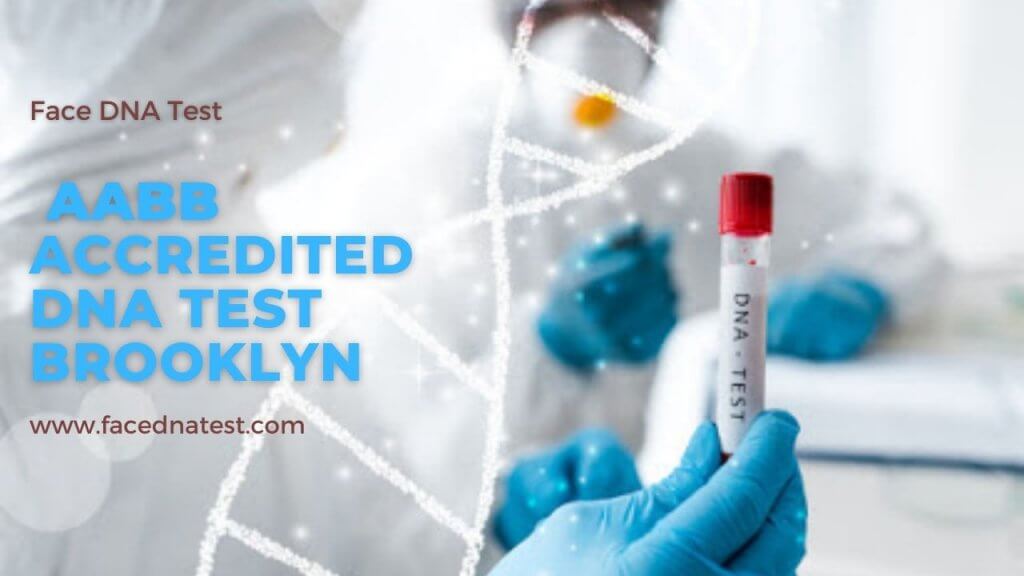When you decide to have a DNA test, you have various options for DNA testing laboratories, but you should choose a reliable one so that you don’t get into any legal trouble later. On the internet, there are lots of dishonest websites that do illegal works and can scam you.

Some will even give you a fake DNA test, so to protect yourself you can take the help of AABB Accredited DNA test Brooklyn, whose certified professionals will perform a genuine test which you can use for all legal cases.
There are the main things which you should know:
- Your DNA test is done by the AABB accredited laboratory
- Check how many DNA locations (also called genetic markers or loci) are tested by your services in the initial test. Though, sixteen DNA locations are recommended in the initial test.
- The minimum guaranteed probability of paternity is 99.99%, so you should know about this minimum guaranteed probability of your chosen DNA testing laboratory before you go for the DNA testing.
AABB Accredited DNA test Brooklyn services follow all required parameters for a reliable DNA testing laboratory. You can do all types of DNA testing such as paternity, prenatal testing, immigration DNA testing, forensics, ancestry, face recognition, and many more.
Recognizing Your Needs
Defining your research goals is the first step in selecting the finest genetic testing facility or any DNA diagnostic center. Just because a laboratory is nearby and reasonably priced doesn’t guarantee that it’s the best option for you. Will you tackle whole-genome sequencing, targeted sequencing for specific genes, or delve into the complexities of hereditary disorders? Think About the Following Elements
1. Competence and Reputation
Choosing a genetic testing provider with a solid reputation and a proven track record of success is crucial. Seek for institutions that have proven their knowledge and proficiency in genomics. It is not appropriate to wing it in this domain. The partner you select should be able to produce dependable and high-quality work.
2. Provided Services
Different genetic testing firms provide a variety of genetic testing services. These include of focused sequencing, and customized testing for certain genetic disorders and particular testing options. Evaluate your research goals and ensure the services the firm provides meet your requirements.
3. Technologies & Tools
Recognize the operating systems and sequencing technologies the business uses in its genetic testing laboratory. Advances in sequencing methods can significantly impact the quality and depth of genomic data acquired. Ensure the business uses cutting-edge tools and techniques to achieve your research objectives.
4. Proficiency and Precision
Precision and quality control are non-negotiable in genetic testing. Seek out businesses that are certified and that follow strict quality guidelines. Remarkable data accuracy is necessary for study findings that have value. Please find out how they handle samples, test them, analyze the data, and store it. Robust procedures for quality assurance should be in place in a trustworthy lab.
5. The DNA test outcomes’ timeliness
Most individuals who order a DNA test want the findings to come back as soon as possible to minimize any worry or anxiety they could have while waiting for the results.
- This is particularly true when the test’s outcome can significantly affect family dynamics.
- Make sure to select a provider that can provide fast results if you want your test results promptly.
Choose Clarity with Our DNA Test.
Get Accurate Answers With our Test!.
-
- Accurate
- Quick Result
- Private and Secure
- Affordable

Top-Tier Analysis of Genetic Markers
Find a firm like Face DNA Test that sells home DNA test kits and collaborates with a facility that tests for at least 16 genetic markers. This is the industry standard for DNA testing. A DNA test is considered more reliable the more markers it has.
One marker is utilized to determine the gender of the test taker based on the DNA sample they have supplied in a paternity testing lab that checks for 16 markers. Meanwhile, paternity is established using fifteen markers. Specific laboratories test fewer indicators than others. They could, for example, only examine nine, ten, or thirteen genetic markers. Steers clear of these laboratories.







Leave a Reply
Your email is safe with us.
You must be logged in to post a comment.